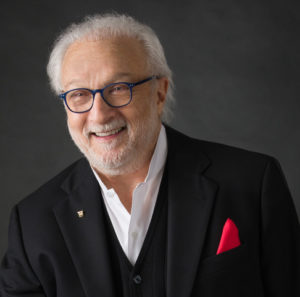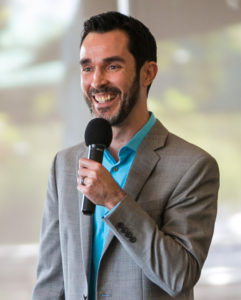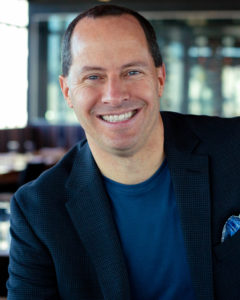In the speaking industry, delivering your keynote presentation is only one part of the puzzle of running your business.
You’ve also got a ton of other factors to contend with, from marketing yourself and managing leads to handling your bookkeeping and admin tasks, planning travel and accommodation, and, of course, working with clients.
While most client interactions are nothing short of incredible, there’s simply no way you’ll go through your entire career without a challenging client situation.
And when you encounter one, the big question becomes how to handle it in a positive way.
Rather than looking at theoretical best practices, we went right to the source and tapped into our network of real-world professional speakers to hear their craziest client horror stories, how they handled them, and the lessons they learned.
Here’s what six of them told us.
Lesson 1: Understand Your Clients Won’t Always Stick to the Script

Author and Speaker on The Nordstrom Way
I was at a mammoth, three-day retail conference in Mumbai, India. According to the printed program, I was scheduled to address 2,000 attendees at 2:00 p.m. on the first day. After sitting through a couple of speakers in the morning session, I decided to return to my room to review my presentation. As I was exiting the huge meeting hall, walking past the stage, I heard the Master of Ceremonies giving my introduction.
Shocked, I called out to the MC that I was scheduled for the afternoon, not now, to which he replied, “No, you’re not, you’re going to speak now.”
I was stuck wondering what to do. I was not ready. My laptop was in my room, which was a good 10-minute walk away. So, I took the stage, and said with a smile, “Ladies and gentlemen, we’ve had a slight mix-up in the schedule. I’ll be right back. In the meantime, why don’t you take a break and network among yourselves?”
Cursing under my breath the whole way, I ran to my room, retrieved my presentation, and ran back to the venue as fast as I could. After the MC reintroduced me, I took the stage with a big smile on my face and told the audience, “I promise to give you a presentation worth waiting for.” And I did.
The big takeaway? Be prepared for anything, including your worst nightmare, but never let that affect your relationship with your audience.
Lesson 2: Clients Won’t Always Cancel During the Pandemic, So Be Ready

President & CEO of Simon T. Bailey International
I was recently asked to speak internationally, in-person, mid-pandemic. To be fair, the client and I had agreed on the date in early January, long before we could know how COVID-19 would affect the globe. However, still, I found myself a few weeks out from the event date, and the client wasn’t canceling – so I decided to do what I had to and fulfill my commitment.
Three COVID-19 questionnaires, four countries, a handful of flights, two visa applications, and a 14-day self-quarantine in London later, I was at the event in Switzerland. And while this wasn’t the most typical client or travel experience, the opportunity allowed me to refresh, reset, and reinvest in myself and the way I do business and has been a great reminder that when you say yes to something, be prepared to jump through the hoops necessary to makes it possible.
Lesson 3: Don’t Count on Clients to Accurately Manage Presentation Timing

International Keynote Speaker, Coach for Aspiring World-Class Speakers, and Founder of Speaker Posse
Early in my speaking career, I shared the stage at an entrepreneurial event with one of the world’s top motivational speakers. Eric ‘ET’ Thomas was set to open the event while I was scheduled to close it out with my 90-minute keynote, ‘Re-Igniting Your Human Spirit’. At this point, I’m stoked!
The day finally arrives and ET absolutely smashes it, leaving everyone totally inspired. Unfortunately, the event host didn’t manage the schedule well, and by the time I’m announced to go on stage, my spot is cut to just 30 minutes! I’m doing my best to stay professional on the outside, yet freaking out on the inside.
Suddenly I remember my mentor’s counterintuitive advice: “When you’re running out of time on stage… SLOW DOWN!” Even though I knew better, and I had a shorter version of my speech, I chose to go forward with my full 90-minute version. I painfully learned that day to never rush a speech for the sake of delivering content. All connection with your audience and the impact of your presentation will be lost. No matter how badly an event is run, stay professional, and always have a modular speech that you can chunk down to 15 minutes and stretch to 90-120 minutes when necessary.
Lesson 4: Inexperience Can Sometimes Seem Like Inconsideration

Funny Motivational Speaker and Speaker Coach
When I was first starting out, I took any event I could to get stage time. Many of the “lower-paying” events were booked by people who weren’t meeting planners — people like the secretary to the VP or the newest member of a committee who got tasked with all the things no one else wanted to do.
After several events where I found myself in precarious situations, like trying to speak while someone’s 10-year-old nephew ran sound, standing outside next to not one but two bouncy castles, or speaking to a group after they had spent 9 hours drinking heavily on a golf course, I learned an important lesson.
Those who aren’t professional planners aren’t jerks, they simply don’t know what they’re doing. I always ask lots of questions now and usually discover if this is something the person who is hiring me has done before. If they haven’t, I politely explain why certain things are important to speakers, such as not having an open bar right next to the stage (yes, I’ve done that, too). I’ve made many friends this way from those who appear to be “difficult clients” by simply recognizing they are new to this. We’re allies with the same goal of making the event fantastic for all involved.
Lesson 5: Don’t Rely on Clients to Give You All the Key Details

Luke Maxwell
Founder, U Can’t B Erased
I was 17 years old and had just started speaking professionally about teen mental health. As you can probably relate, I was riding the high of my first few presentations at conferences and high schools and felt like I could conquer the world. So, when I received a casual request to do a favor to someone I knew loosely and to speak to a small group, I didn’t bother asking questions.
I arrived precisely 30 minutes early as always and, to my horror, everyone was speaking Spanish. Now, I’m a California boy that lives close to the Mexican border, but I still can barely ask for directions to the bathroom. I managed to find the organizer who invited me and she reassured me that I can just give my speech in English… to a room full of people who weren’t speaking any.
Anxiety spiking, I gave my full 30-minute speech to the most uninterested and silent audience I’d ever had in my career until then — or since. No one understood a word of what I was saying. And afterward, I left making a note to always ask who the audience was and what language they spoke.
Lesson 6: Be Prepared to Be Prepared (Just in Case Your Client Isn’t)

Mike Domitrz
Speaker, Author, and Founder of The Center for Respect
Picture yourself five minutes into a live virtual program for your client that is being hosted on their account.
All of a sudden, the meeting abruptly ends. You immediately click the original link to enter the meeting and you’re back in. The attendees are all coming back on with you. Yep, they were kicked out too.
Within seconds, the live virtual webinar is crashing to a close again. The client has over 400 people attending! Immediately, I create a new Zoom Webinar on our business account. While doing that, I’m also calling the client and telling them what I’m doing.
I jump back into the original meeting link and, as quickly as possible tell everyone to go to my meeting, providing them the new link in the Chat. The client also emailed everyone our new link.
We sit there and wonder, “How many of the attendees are actually go to come over back considering how wild this ride has been for the last 5 minutes?” The answer? Almost every attendee joined my link. The client was thrilled!
The big lesson learned is to always have a backup meeting scheduled on your account for your client’s events.
If you’re a professional speaker, or looking to break into the industry, challenging clients are an inevitability. How you handle those situations is what makes the difference between disaster and success.
If you’d like to learn how a customer relationship management platform can help optimize your sales process and help you book more gigs, get in touch with our dedicated support team or start a free trial of karmaSpeaker today.

